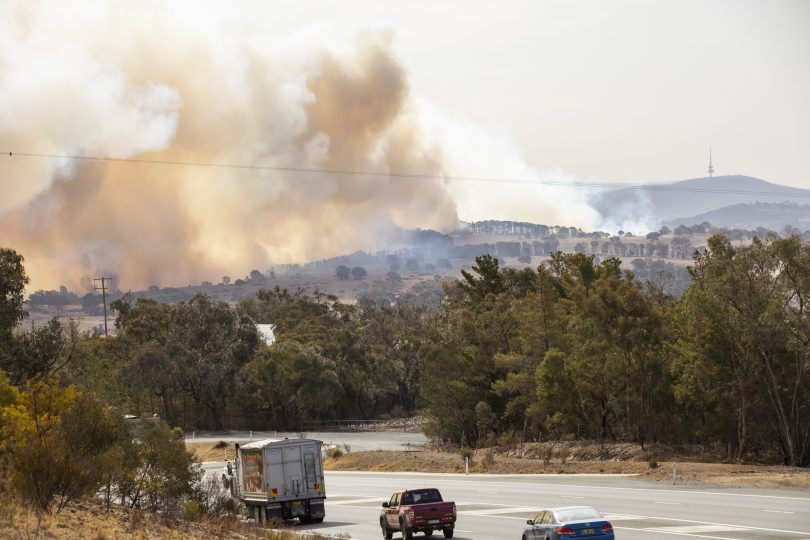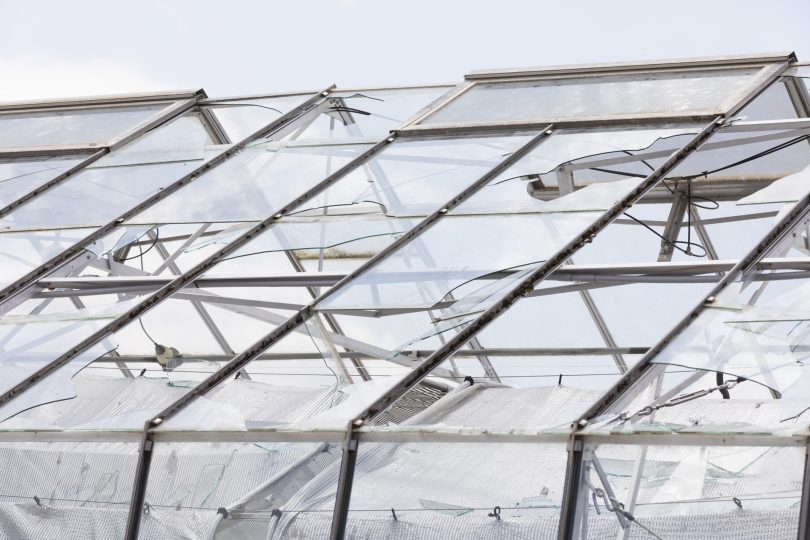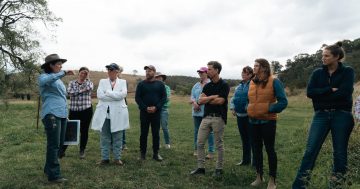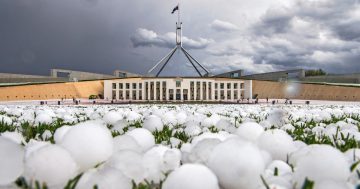
Australia’s unprecedented summer of bushfires, smoke and a hailstorm has prompted the ANU Council’s resolution on climate change. Photo: Region Media.
The Australian National University plans to make the campus greenhouse gas negative and further reduce its investment exposure to carbon intensive industries such as coal mining.
After an unprecedented summer of bushfires and extreme weather, the ANU Council has called for urgent action to address the growing challenge of climate change.
In a resolution from its latest meeting, the ANU Council also said the university would step up its advocacy and act and “speak strongly in public” to help address climate change across the university and more widely.
The resolution noted Australians and the ANU community had to deal with severe weather events, including bushfires, smoke and a hailstorm, which caused widespread damage to research facilities.
“These unprecedented severe events have been exacerbated by climate change, as ANU scientists, among others, have long predicted and warned,” the resolution reads.
“ANU needs to respond to these challenges with a continued focus on world-leading climate research and adapt to climate change.
“The ANU Council therefore recognises the urgency of action to address the growing climate challenge, to which the university will respond collectively, using the resources at its disposal.”
This includes making the ANU greenhouse gas negative “as soon as possible”, an idea flagged in ANU Vice-Chancellor Brian Schmidt’s 2020 State of the University address.
Director of the ANU Climate Change Institute Professor Mark Howden and his colleagues have been called upon to spearhead this goal.
Professor Howden said the first step would be to reduce emissions from the heating of buildings, the ANU’s vehicle fleet, research activities, travel and many minor sources.
“There are often available technologies to do this such as by using electric cars which are charged via the ACT’s renewable electricity. Importantly, the IPCC shows that to keep global temperatures to within 1.5C above pre-industrial levels we also have to draw down carbon dioxide from the atmosphere – going to net negative emissions,” he said.
“This is the aim of the ANU Below Zero initiative. One way of doing this is via management of the trees and soil in the University’s land holdings or, as an interim option, via purchased verified carbon offsets.”

An ANU research glasshouse shattered by January’s intense hail storm. Photo: Region Media.
The ANU’s Socially Responsible Investment (SRI) Policy already says its investment managers must not invest in companies that derive more than 20 per cent of revenues from coal, gambling, tobacco or pornography, and investments must decrease the university’s investment exposure to CO2 intensive industries without increasing its exposure to volatility in the equities markets.
A report last year said in 2018 the ANU had made significant progress in ensuring the carbon intensity of its investment portfolio remained well below the respective industry benchmarks, while maintaining a solid return on the investment portfolio.
At 31 December 2018, the university’s Long Term Investment Pool (LTIP) amounted to $1.2 billion.
Speaking on the council’s resolution, ANU Chancellor Julie Bishop said the extreme weather events experienced at ANU this summer reflected a much broader national and global challenge.
“Australia is seen by the rest of the world as the frontline when it comes to the impact of climate change with the disastrous bushfires, the torrential rain and floods that have devastated so much of our community including our wildlife,” Ms Bishop said.
“We understand the challenge and that we have the resources with our world-leading research here at ANU to help address these problems.
“It’s important for us to raise our concerns and be a leader in ensuring that there is as much information available for the development of policies and initiatives to adapt and mitigate the impact of climate change.”
Professor Schmidt said universities had a big role to play when it came to addressing climate change.
“Universities need to make it easy for people to see how climate change can be mitigated in the future,” he said.
“There are solutions to how we use energy and how we mitigate the emissions in the future. That comes down to people and technology. And universities of course are all about people and technology.
“Universities are ultimately going to be where the solutions lie to mitigating the effects of climate change and stopping greenhouse gas emissions in the future.
“At ANU we want to lead on this issue. The university has made a decision that it is going to go greenhouse gas negative in the near future because we think we can and to show society that it is not that difficult.”


















